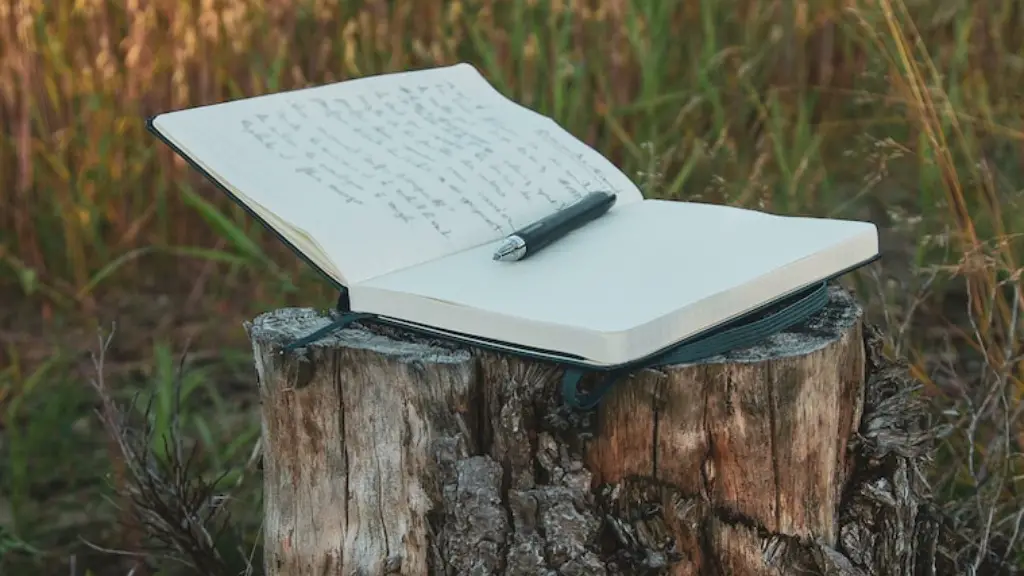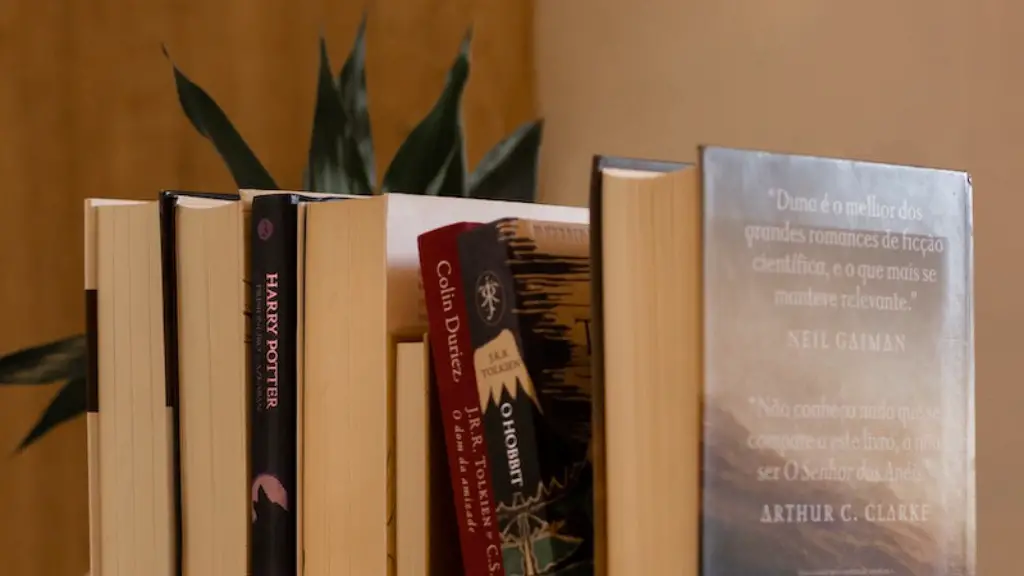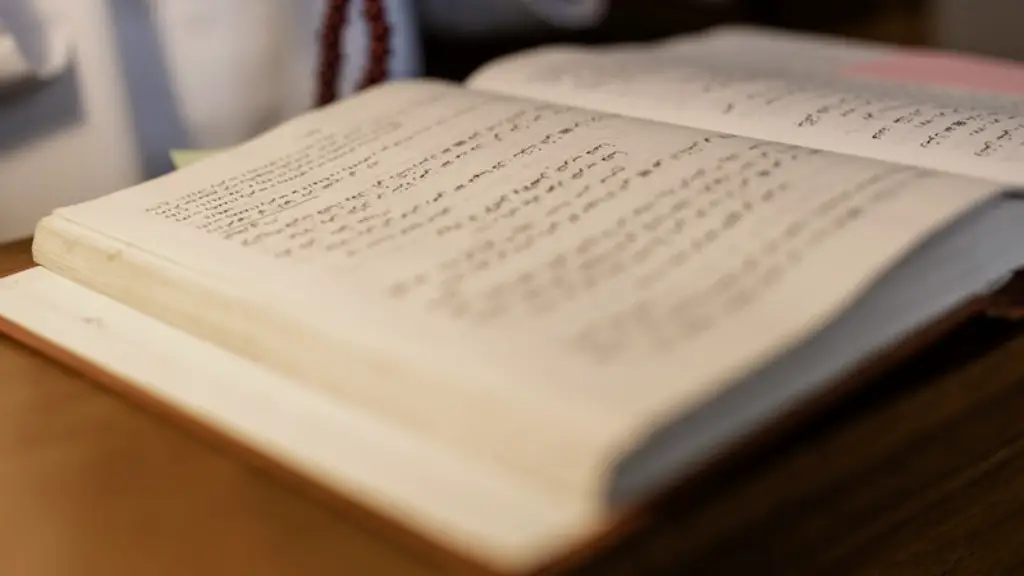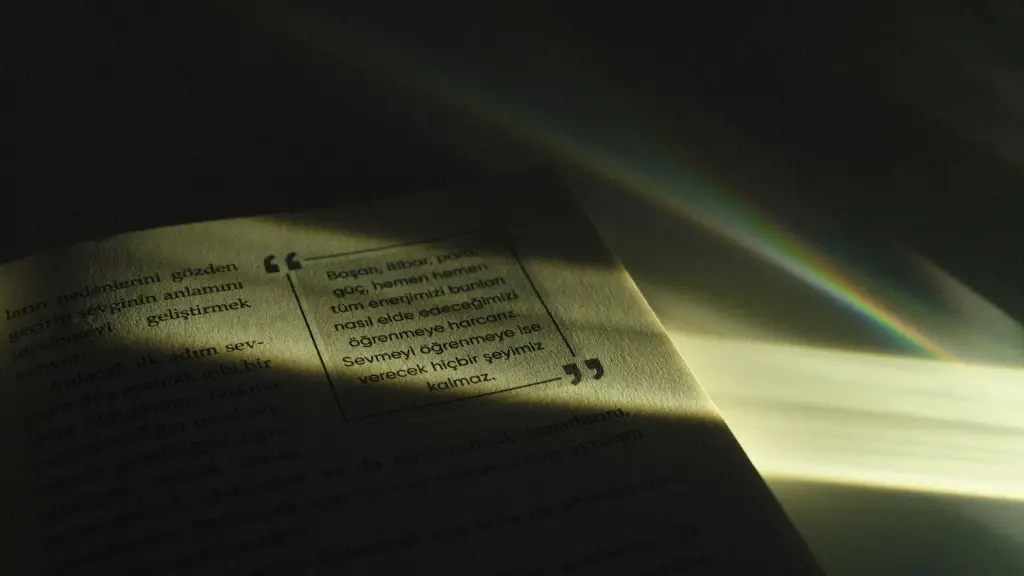Highlighting the Relationship Between Poetry and Education
Poetry is an art form that is often tied exclusively to emotions – and education is perceived as being about learning facts, figures and having theoretical knowledge. In actuality however, it has long been established that poetry can play a crucial part in a student’s development and should be regularly used in the educational system. Here, we examine the power and importance of poetry in terms of education, along with highlighting the significance of this medium.
From a broad perspective, poetry encompasses a wide range of forms, including the traditional sonnet and haiku, as well as more “contemporary” variations such as rap and spoken word.
In essence, poetry is a vessel for communicating all of the nuances and complexities of the human experience while encapsulating all of the depth and beauty associated with it. As a result, it is an excellent tool for facilitating connection between people, enabling both educators and learners to express themselves in profound ways.
In terms of the learning process itself, poetry offers a wealth of opportunities for teachers and students alike. A 2008 report conducted by the American Educational Research Association (AERA) found that poetry could serve as a source of inspiration for students, helping them find motivation to remain interested in their studies. Additionally, poetry and related exercises also provided a platform for students to explore various aspects of their educational journey; drawing attention to what inspires them, what challenges them, and how these stimuli fit within a larger context.
From the teacher’s vantage point, poetry is a way to empathize with students, helping to create an atmosphere of exploration, curiosity and mutual respect. Moreover, examiners have questioned whether such methods are merely of “academic” value. In fact, the National Council of Teachers arrived at the conclusion that poetry significantly aids in the formation of essential social-emotional skills relevant to the broader development of students.
Dr. Nandi Crosby, an assistant professor of Literacy at the University of Arkansas, explains: “Poetry helps students practice empathy by considering the thoughts and feelings of other people, often people from different times, places, and situations from their own. By studying a poet’s distinct form and content, teachers and students can attempt to view different perspectives.”
Furthermore, research by the Harvard Graduate School of Education demonstrated that poetry can help to ease test anxiety, enabling students to access and apply their knowledge with greater efficiency.
Exploring the Format of Poetry in Education
Rhythm and repetition are two key features of poetry which can be utilized in a variety of educational formats, enhancing an individual’s engagement with the given content in both the classroom and beyond.
Rhythm, particularly rhythmic chanting, can help students to more easily remember key facts and ideas, while repetition can aid in the formation of groundbreaking realizations and the reinforcement of important concepts.
Moreover, poetry can also serve to expand students’ understandings of previously acquired knowledge. At the University of Arkansas, one professor used a rap lyric to have students explore the implications of subject matter as varied as tax law and trigonometry.
Through such methods, students developed a greater understanding of how their educational pursuits were relevant to the wider world – and this in turn helped to increase motivation and interest.
Creative writing initiatives are another excellent way of implementing poetry in education. Dr. Taniesha Weeks, an educator at Samford University, affirms that by writing and analyzing their own poetry, students are able to read, comprehend and apply their gained knowledge with greater insight.
Conversely, by reading the poetry of famous authors, students can pick up subtle nuances and suggestions that might previously have been overlooked. In essence, poetry offers a platform for engrossing folks in the realm of literature – and offers inspiring, thoughtful processes for learning and growth.
Utilizing Poetic Devices to Encourage Discussion
Aside from its data-oriented benefits in terms of education, poetry has a number of implications when it comes to discussion. To that end, much like creative writing initiatives, group exercises in poetic analysis can aid students in voicing their own interpretations and critical reactions, whilst also allowing for sentiments to be shared and examined – in both a respectful and constructive manner.
For example, the expansion and analyzing of a famous poem can offer an environment of “safe discussion” with minimal fear of judgment; hence students can freely explore ideas without fear of being wrong. What’s more, poetry can help students to learn the power of their own voice, along with boosting confidence and the ability to articulate opinions.
It’s also worth noting that the utilization of poetic devices, such as metaphor and simile, can also prove to be more effective in terms of learning than traditional methods. One such example might be the study of the effects of global warming; a lesson may be more conducive to an understanding and discussion if it is framed from alluding to the effects, rather than simply citing a string of statistics and figures.
Ultimately, poetry serves to bring people and topics together in meaningful ways, enabling for concepts to be examined and discussed in an effective, efficient and collaborative manner.
Addressing the Role of Poetry in the Digital Age
The trend to move away from traditional and more classical forms of poetry is continuously growing, with spoken word and rap becoming increasingly more common. This has had both a positive and a negative effect on the education system; with one benefit being that it helps to remove some of the traditional stigmas associated with poetry.
In addition, modern-day technology has allowed for the fast and efficient circulation of information and resources – and this has enabled educators to craft lessons centered around these more up-to-date forms of poetry. For example, Youtube videos and audio clips can be powerfully utilized in lessons, enabling students to more easily comprehend the concepts being discussed.
There are also numerous interactive exercises which can be utilized for leveraging poetry in the classroom, allowing for a dichotomy of study materials and exercises. Instructors can mix traditional paper-based initiatives with digital activities, such as podcasts and videos.
The American College of Education further emphasizes the power of poetry as “a literary art form of creative expression”, perfectly suited for a variety of pedagogical tools and suitable for class applications across disciplines. Therefore, the utilization of contemporary trends could prove to be very beneficial in terms of the educational domain.
Injecting Imagination and Creativity Into the System
Education has always been seen by many as a set of rules and guidelines that have to be adhered to – but there is also an undeniable need for imagination and creativity to be infused into the system. In particular, the AERA found that students who receive instruction that combines creativity with theory have significantly higher levels of engagement than those who solely participate in conventional activities.
Therefore, injecting creativity into the classroom can help to inspire students and make them more likely to remain engaged with their studies. This is where the use of poetry can be particularly beneficial; while it contributes to the development of analytical abilities, it also encourages creative and innovative thought processes.
The Sloan Consortium report further attests to the efficacy of poetry for breaking away from “dry” institutions. Specifically, the use of poetic devices can help to enliven the mundane aspects of learning – such as memorization – allowing for instruction to become an exciting, enjoyable and thought-provoking exercise that can be thoroughly engaging for those involved.
In essence, by harnessing the power of poetry, teachers can cultivate an environment of discovery, self-expression and excitement within the educational system – which is likely to have a profoundly positive impact on pupils.
The Power of Poetry in fostering Greater Understanding
At the end of the day, poetry is an effective medium for connecting with individuals – and this is something that every teacher should strive for. While involving poetry in education can benefit both the recipients and the instructors, the focus should be placed on the children’s personal development, as opposed to solely striving for perfect marks.
A poetic approach may seem unorthodox but it is becoming increasingly popular. The key is to combine theoretical knowledge with the relevant creativity – and injecting poetry into the educational process can help teachers to meet that objective. By doing so, they can help students to gain greater insight into their own growth and knowledge – inspiring personal change and accomplishment.
Demonstrating the Benefits of Poetry as a Learning Tool
Putting aside academia, there are also numerous other advantages which can arise from using poetry in education. It can help to cultivate a variety of unique skills, such as presentation, research, logical analysis and problem-solving. Moreover, it can teach individuals lifelong lessons of competition, cooperation and teamwork.
Creative writing activities, for example, can build resilience in students through the act of learning, failing and then re-evaluating their work. This in turn can help to build confidence, courage and self-assurance.
More broadly, poetry can also be a positive foundation for understanding the world in its entirety; teaching people to assess situations and to act upon them with greater insight. Ultimately, this allows for individuals to grow both intellectually and emotionally, helping to form the basis for further learning.
Promoting the Power of Self Expressive Writing
While it is easy to forget it in the face of modern technology, self expressive writing remains of the fundamental aspects of education – and the practice of writing poetry can be an effective way of fostering this crucial ability.
This is particularly effective when used in conjunction with other forms of media; students can explore the power of combining writing, videos and music, enabling them to fully express themselves and their ideas.
Organizations such as Poetry in Voice have further promoted this style of education, providing resources such as lesson plans and activities for both teachers and students. Such methods promote the appreciation of literature in an exciting, interactive way – and illustrate the immense power of the spoken word.
Focusing on the Core Skills of Poetry in Education
In educational terms, there are three core aspects of poetry which should be focused on: Analysis, interpretation and style.
The first involves reading comprehension – i.e. being able to interpret what a poem is saying. Activities such as discussion groups and critiques can aid in this process.
The second element is interpreting the underlying meaning; namely, delving into the deeper reasons behind why a specific poem is the way it is. By questioning the text and exploring the possible implications, students can gain a greater understanding of the poem and the situations which likely inspired it.
The third and final element is style; while the first two elements focus on the analysis of the poem, style emphasizes the writing and the manner in which it is presented. To that end, teachers can have students explore different methods of displaying the poem, such as through craft or documentaries – allowing for further insight into the text.
Promoting an Environment of Creative Learning
In conclusion, poetry has great implications for the educational system – regardless of the academic subject. It enables students to engage with their studies in a more relevant manner, allowing for enhanced comprehension and a greater appreciation for the learning process.
Moreover, it also offers teachers a platform for empathizing with their students and enabling them to express themselves in meaningful ways.
As technology and trends evolve, the boundaries of poetry serve to blur – yet the key is to take advantage of these changes and to ensure that the focus on education is always the predominant priority.
Offering Specialized Pathways for Engaging With Poetry
Specialized classes focused on poetry and





